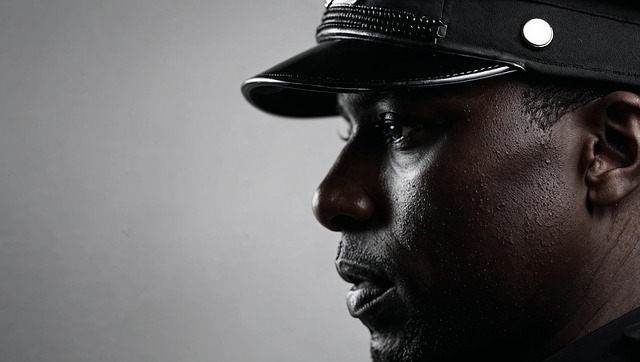Understanding different types of litigation, especially criminal vs. civil cases, is crucial for effective navigation of legal disputes. The Right to Counsel in criminal cases protects individuals accused of crimes, with specialized lawyers employing strategic guidance to secure favorable outcomes, particularly in high-profile sectors. While criminal proceedings focus on punishment and potential imprisonment, civil disputes seek financial compensation or specific performance for private party conflicts. Legal professionals are indispensable, offering strategic advice in complex scenarios like white-collar crime, where successful outcomes minimize negative impacts. Case studies highlighting diverse factors' impact on outcomes empower lawyers to anticipate complexities, enhancing their skills for justice in an evolving legal landscape, with a key focus on the Right to Counsel in criminal cases.
In the intricate legal landscape, understanding various litigation types is paramount for both practitioners and individuals navigating disputes. This article explores a spectrum of cases, from criminal prosecutions to civil disagreements, uncovering the unique dynamics and rights at play. We delve into the crucial role of the right to counsel in criminal cases, highlighting its significance for fair trials. Through case studies, we demystify complexities, offering insights that empower stakeholders to make informed decisions across diverse legal scenarios.
- Understanding Different Types of Litigation
- Right to Counsel: A Cornerstone of Fair Trial
- Criminal Cases vs. Civil Disputes
- The Role of Legal Professionals in Each Scenario
- Navigating the Complexities: Case Studies and Insights
Understanding Different Types of Litigation

Understanding different types of litigation is crucial for anyone navigating legal disputes. Litigation encompasses a wide range of legal processes, each with its own unique characteristics and potential outcomes. One key distinction lies in criminal versus civil cases. While criminal litigation involves the state pursuing charges against an individual for allegedly committing a crime, civil litigation arises from disputes between private parties over issues like contracts, property, or personal injuries. The Right to Counsel in Criminal Cases is a fundamental aspect that differs significantly from civil proceedings.
Knowing these types of litigation is essential, especially when dealing with high-stakes cases. In criminal matters, the focus is often on avoiding indictment and potential jail time, while in civil lawsuits, the goal might be financial compensation or specific performance to resolve a dispute. Understanding these nuances empowers individuals and businesses to make informed decisions, choose appropriate legal strategies, and ultimately navigate their respective business challenges effectively.
Right to Counsel: A Cornerstone of Fair Trial

The Right to Counsel is a fundamental pillar of any just and fair legal system. In criminal cases, this right guarantees that individuals accused of a crime are entitled to legal representation from an attorney. This cornerstone principle ensures that defendants have equal access to justice, enabling them to navigate complex legal processes and protect their rights. Having legal counsel plays a pivotal role in securing a fair trial by providing strategic guidance, thorough investigation, and powerful advocacy on behalf of the defendant.
In the realm of white-collar defense, where cases often involve intricate financial and legal complexities, the Right to Counsel takes on added significance. It empowers individuals to mount winning challenging defense verdicts, especially within the philanthropic and political communities, where legal battles can be highly publicized and demanding. Skilled attorneys specializing in these areas employ a multitude of strategies to defend their clients, ensuring that every angle is explored and every right upheld throughout the litigation process.
Criminal Cases vs. Civil Disputes

In legal terms, a significant distinction lies between criminal cases and civil disputes. Criminal proceedings involve allegations of illegal acts that have harmed the state or its citizens, leading to potential imprisonment and fines. Here, the focus is on punishment and deterrence rather than compensation. The Right to Counsel in Criminal Cases is a fundamental aspect, ensuring individuals accused of crimes have legal representation to protect their rights. This is crucial for navigating the complex criminal justice system, where due process and fair trials are paramount.
In contrast, civil disputes arise from conflicts between private parties, often involving breach of contract, personal injury, or property damage. These cases aim to resolve disputes and provide remedies such as monetary compensation or specific performance. While both types of cases require legal expertise, the stakes differ significantly. In criminal matters, the outcome can lead to a complete dismissal of all charges, whereas civil disputes typically result in financial settlements or judgments that address specific grievances within the boundaries of private relationships and transactions, often with less direct impact on societal structures.
The Role of Legal Professionals in Each Scenario

In various litigation scenarios, legal professionals play pivotal roles, ensuring justice is served and clients’ rights are protected. When it comes to criminal cases, the Right to Counsel is a cornerstone of fair legal proceedings. Across the country, lawyers specializing in criminal defense work tirelessly to advocate for their clients, often navigating complex legal landscapes. They provide essential guidance, conduct thorough investigations, and develop robust strategies to defend against charges, ensuring due process is followed.
In the realm of white-collar and economic crimes, experienced legal professionals are crucial. They help individuals and businesses understand their rights and obligations, offering strategic advice to mitigate risks. With an unprecedented track record of success, these experts can make all the difference in navigating high-stakes cases, ensuring fairness and minimizing negative impacts on personal and professional lives.
Navigating the Complexities: Case Studies and Insights

Navigating the complexities of litigation requires a deep understanding of various case scenarios and their unique challenges. Through thorough case studies, legal professionals gain invaluable insights into how different factors influence outcomes in both civil and criminal matters. For instance, exploring high-stakes cases involving significant financial or reputational consequences can offer lessons on strategic decision-making under pressure. The Right to Counsel in Criminal Cases is a prime example where effective legal representation can make all the difference for individuals facing serious charges. These case studies not only highlight successful strategies but also expose potential pitfalls, allowing lawyers to anticipate and navigate complexities more adeptly.
Moreover, studying real-world scenarios provides a lens into the interplay of law, ethics, and public interest. Many times, these cases reveal how the involvement of philanthropic and political communities can impact litigation outcomes. Understanding these dynamics is crucial for advocates aiming to secure justice not only for their clients but also for broader societal interests. By delving into diverse case studies, legal practitioners can enhance their skills, adapt strategies, and ultimately deliver more effective representation in an ever-evolving legal landscape.
In understanding the diverse landscape of litigation, recognizing the critical role of the right to counsel in criminal cases becomes paramount. This article has explored various litigation types, highlighting the distinct nature of criminal proceedings versus civil disputes. It has also underscored the importance of legal professionals in each scenario, providing insights into navigating complexities through real-world case studies. Ultimately, ensuring access to competent counsel is essential for fairness and justice across all types of legal battles.






